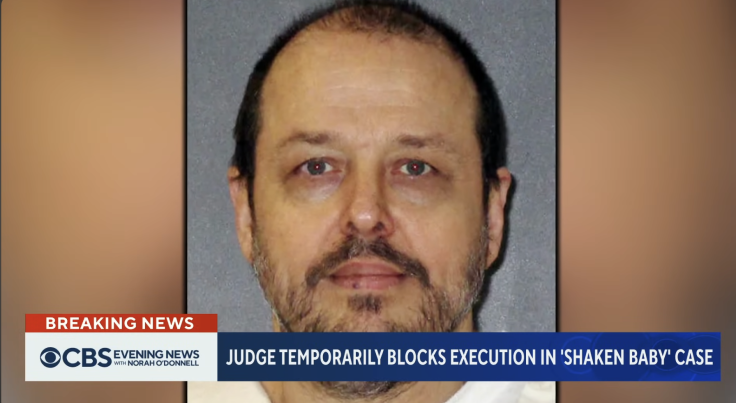
The Texas Supreme Court on Thursday temporarily halted the execution of death row inmate Robert Roberson, just hours before he was set to become the first person in the U.S. to be executed for a murder attributed to shaken baby syndrome.
Roberson, 56, had been scheduled for execution on Thursday evening for the 2002 death of his 2-year-old daughter, Nikki. After taking her to the hospital in 2002, scans revealed internal brain trauma that, at the time, was believed to indicate violent shaking.
The court's decision came after a bipartisan group of Texas state lawmakers, led by Representatives Joe Moody and Jeff Leach, orchestrated an unprecedented subpoena, summoning Roberson to appear before them to answer questions about his case.
The lawmakers have been vocal advocates for further examination of Roberson's conviction, citing concerns about the validity of shaken baby syndrome as a reliable medical diagnosis in criminal cases.
In a written statement following the court's ruling, Moody and Leach praised the decision: "We look forward to welcoming Robert to the Texas Capitol, and along with 31 million Texans, finally giving him - and the truth - a chance to be heard."
Earlier on Thursday, a district court had issued a temporary injunction to halt Roberson's execution, but the Texas Court of Criminal Appeals swiftly overturned that decision.
Texas Supreme Court Justice Evan Young, in his order to halt the execution, pointed to the legal complexities arising from the subpoena issued by lawmakers.
Justice Young noted that the move by state legislators had created a clash between the three branches of government, which needed to be resolved before any execution could proceed.
The legal battle surrounding Roberson's case has captivated Texas, a state known for leading the nation in executions.
However, Roberson has consistently maintained his innocence, and experts have raised serious concerns about the evidence used to convict him. The last-minute stay has brought relief to those who feared the execution would be a grave miscarriage of justice.
"He's an innocent man, and we're on the brink of executing him for a crime he didn't commit," said Brian Wharton, the lead detective who initially investigated Nikki's death. Wharton, now a vocal advocate for commuting Roberson's sentence, has become one of his strongest supporters.
However, the diagnosis of shaken baby syndrome has since faced significant scrutiny, with some experts questioning its reliability in criminal prosecutions.